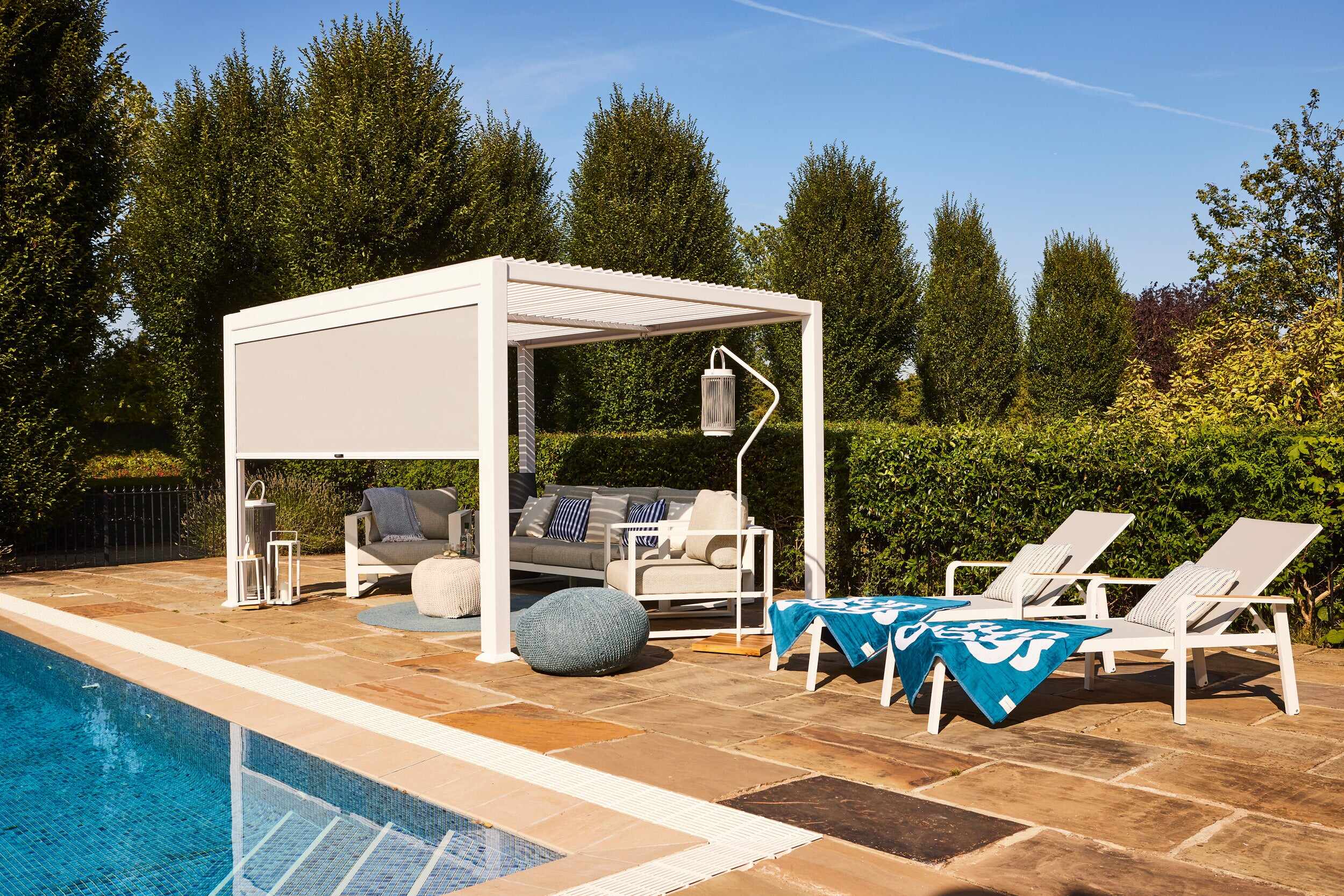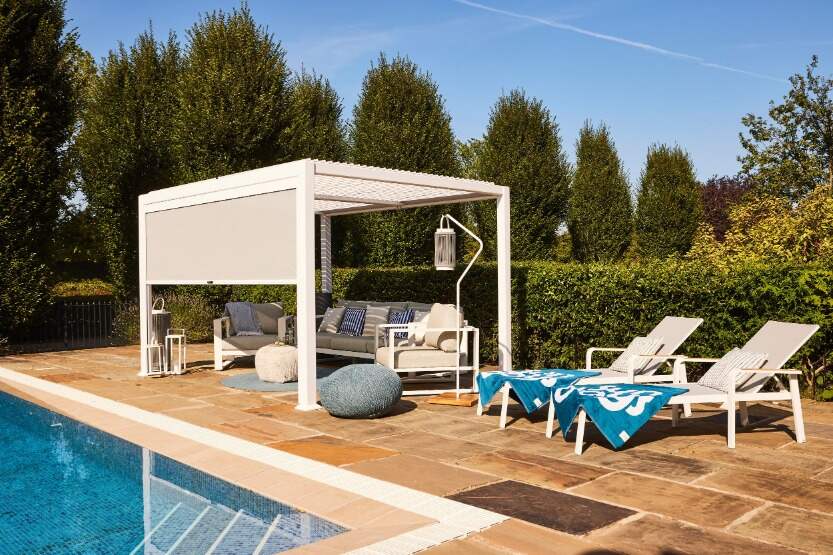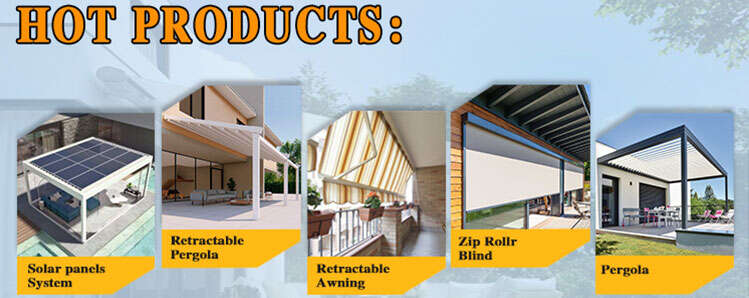Email format error
Email cannot be empty
Email already exists
6-20 characters(letters plus numbers only)
The password is inconsistent
Email format error
Email cannot be empty
Email does not exist
6-20 characters(letters plus numbers only)
The password is inconsistent


What Is a pergolas ? Differences Between Aluminum and Wooden Pergolas
What Is a pergola? Key Differences Between Aluminum and Wooden pergolas – Pros and Cons Explained
pergolas have become increasingly popular in modern landscaping and outdoor living designs. In this article, we’ll explain what a pergola is, the main differences between aluminum pergolas and wooden pergolas, and how to choose the right one for your specific needs.

1. What Is a pergola? Definition and Common Uses
A pergola is a freestanding, roofed outdoor structure with open sides, designed to provide shade, shelter, and a comfortable place to relax. pergolas are commonly used in:
- Private gardens and patios
- Parks and scenic areas
- Rooftop terraces and balconies
- Outdoor cafes, resorts, and poolside spaces
Beyond their functional value, pergolas enhance the overall look and atmosphere of an outdoor space, adding a touch of elegance and leisure.
2. Aluminum vs. Wooden pergola: What's the Difference?
When it comes to choosing a pergola, aluminum and wood are the two most popular material options. Here’s a detailed comparison of both types across key features:
|
Feature |
Aluminum pergola |
Wooden pergola |
|
Material |
Lightweight, rustproof aluminum alloy |
Natural wood with organic texture |
|
Style |
Modern, minimal, color-customizable |
Classic, rustic, or traditional |
|
Lifespan |
15+ years |
5–10 years |
|
Maintenance |
Low; nearly maintenance-free |
High; requires regular upkeep |
|
Durability |
Strong and weather-resistant |
Prone to warping, rotting if not treated |
|
Installation |
Prefab modules, fast assembly |
Usually built on-site, takes longer |
|
Cost-effectiveness |
Higher upfront cost but low long-term costs |
Lower initial cost, higher maintenance expense |
3. Why Choose an Aluminum pergola? Top 5 Advantages
1. Superior Weather Resistance
Aluminum is naturally resistant to rust, corrosion, and UV rays. It's ideal for humid, rainy, hot, or coastal environments.
2. Almost Maintenance-Free
Unlike wood, aluminum pergolas don’t need painting, sealing, or termite treatment. Just occasional cleaning is enough.
3. Modern & Customizable Look
Aluminum pergolas support custom powder coatings and wood grain finishes. They blend well with contemporary, European, or minimalist designs.
4. Strong and Wind-Resistant
High-strength aluminum structures can withstand winds up to 8–10 on the Beaufort scale, making them reliable for permanent outdoor use.
5. Quick Installation for Projects
Modular components allow for easy transportation and fast on-site assembly. Perfect for villas, rooftops, hotels, and commercial areas.
4. Advantages of Wooden pergolas: A Natural Touch
Despite requiring more care, wooden gazebos have their own charm and advantages:
-
Natural wood texture adds warmth and blends beautifully with plants and gardens
-
Aesthetic appeal for traditional, Japanese, or countryside-style spaces
-
Lower initial cost, suitable for decorative or seasonal use
They are ideal for light-use scenarios and for users who enjoy classic or handcrafted styles.
5. Aluminum vs. Wooden pergola: Which One Should You Choose?
Choose an Aluminum pergola if:
- You plan to use it frequently in sun, rain, or wind
- You need a long-term solution for commercial or private use
- You prefer a modern, low-maintenance, and highly durable option
Choose a Wooden pergola if:
- You don’t mind doing regular maintenance
- You’ll use it occasionally and prioritize style over durability
- You want a warm, natural look for decoration
6. Frequently Asked Questions (FAQ)
Q1: Can aluminum pergolas be customized in size?
Yes. Most aluminum pergolas are fully customizable in dimensions, colors, roof styles, and accessories.
Q2: Is it hard to install an aluminum pergola?
No. Thanks to modular design, most pergolas can be assembled by a team within 1–2 days.
Q3: What regions are aluminum pergolas suitable for?
They are suitable for all climates, especially areas with high humidity, intense sunlight, or salty coastal air – like Southeast Asia, the Middle East, Africa, Australia, and North America.
7. Conclusion: Choose the Right pergola Based on Your Needs
Whether you prefer the durability and modern design of aluminum pergolas or the natural beauty of wooden ones, both options offer unique value. It all depends on how you plan to use the pergola, your environment, and your maintenance preference.
Suggested Keywords (for SEO tags and optimization):
- What is a pergola
- Aluminum vs wooden pergola
- Aluminum pergola advantages
- How to choose a garden pergola
- Outdoor pergola comparison
- Custom aluminum pergola manufacturer
- Best pergola for patio or garden
If you'd like this content turned into a landing page, product brochure, or SEO blog article with internal links and call-to-action elements, I’d be happy to help you with that as well.

